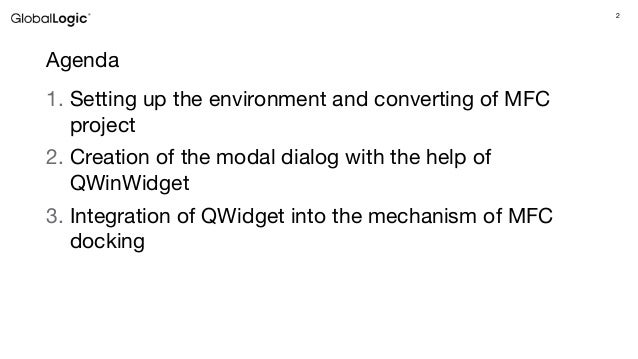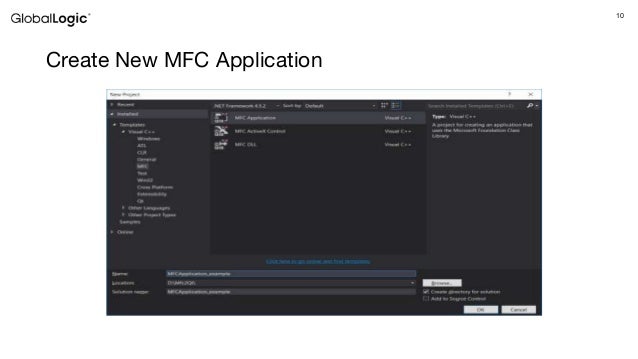- Mfc To Wxwidgets Converter Download
- Mfc To Wxwidgets Converter Download
- Mfc To Wxwidgets Converter Online
- Mfc To Wxwidgets Converter Software
- Mfc To Wxwidgets Converter
This question seems common so I thought I'd write an article. Note that sometimes there may be more than one possible solutions, so don't forget to check the docs.
Literals
Application with mingw (gcc) by converting it to WFC (By SamBlackBurn). Sam didn't reinvent stuff that works fine in MFC. You should take a look at Qt or wxWidgets (formerly wxWindows). Compile on your gcc compiler. With mingw (gcc) by converting it to WFC (By SamBlackBurn).
A literal is a string written in code with 'quotes around it'. A literal is not a wxString, and (in wxWidgets 2.8) will not be implicitly converted to one. This means that you can never pass in a raw literal into a wxWidget function or method (unless you don't care about your app not building with Unicode-enabled wxWidgets builds)
Instead, wxWidgets (prior to wxWidgets 3.0) requires you to use one of these macros to turn literals into wxString-compatible characters:
Qt Creator is just IDE, it's incapable of doing any magic. Hence simple answer is: You can't. I don't have enough insight into your console application, but most of cases it's utter nonsense in attempt to turn command line tool into GUI applicatio. Also see AfxA2WHelper and AfxW2AHelper in the MFC source code in msdev mfc src and the use of OLE2T, T2OLE, OLE2CT and T2COLE in the MFC source code in msdev mfc src. These functions allow code to be compiled either for Unicode or ANSI depending on whether the UNICODE preprocessor definition has been made. Between Qt, GTK, and wxWidgets, there are many similarities between those technologies and the book showcases what makes wxWidgets practical. It is said that wxWidgets received the inspiration for its design from Microsoft MFC. I am familiar with Microsoft MFC from Ivor Horton's Microsoft Visual C books and I can concur with that assessment.
Rather than being a nuisance, the _(), wxT(), and _T() macros take care of some unicode issues.
char* to wxString
Note that in wxWidgets 3.0, it just works to pass a char array where a wxString parameter is expected, the conversion will be automatic and implicit, using the current locale encoding. So even in wx 3.0, the snippets presented below still make sense when you don't want to be at the mercy of the current locale encoding.

wxString to char*
mb_str() returns a temporary pointer; if you need the output for more than one function call (as is the case above), you can store the char buffer for a little while :
And if you really need to copy it in to char* (but why would you? ;) :
You can also use ToUTF8(), since which encoding you get is clearer than with mb_str()
From const char* to char*:
Variadic functions (like printf) won't work with mb_str(), but this will work:
Alternatively, use the method recommended in Potential Unicode Pitfalls:

wchar_t* to wxString
wxString to wchar_t*
See the following methods in the docs :
wxString to TCHAR
int to wxString
or
float to wxString
Mfc To Wxwidgets Converter Download

or
wxString to integer number
or
wxString to floating-point number
std::string to wxString
Starting from wxWidgets 3.0, you may also use the appropriate constructor
wxString to std::string
wxWidgets 2.8 :
Mfc To Wxwidgets Converter Download
Under wxWidgets 3.0, you may use
std::wstring to wxString
Starting from wxWidgets 3.0, you may use the appropriate constructor
wxString to std::wstring

Under wxWidgets 3.0, you may use
Mfc To Wxwidgets Converter Online
Mfc To Wxwidgets Converter Software
'I have just downloaded and tried the latest version of DialogBlocks, and it is really an amazingly good piece of software. It rocks!' - NicolasRead more testimonials...
Mfc To Wxwidgets Converter
DialogBlocks received a Performance Award in the August 2005 issue of the UK magazine, PC Plus.
Benefits
- spend minutes on your dialog UI, not hours;
- no more writing complex sizer-based layouts by hand;
- the chore of adding event handlers becomes effortless;
- it's like having your own programming assistant updating your UI code.
Features
- wxAuiToolBar support
- Now DialogBlocks supports wxAuiToolBar, an enhanced toolbar for use with or without wxAUI. wxAuiToolBar supports drop-down buttons, control labels and overflow items.
- wxAUI support
- DialogBlocks supports wxAUI - any dialog, frame or panel can be a wxAUI manager, handling sizing and positioning of its child windows.
- wxPropertySheetDialog
- DialogBlocks directly supports wxPropertySheetDialog, for easy editing of your application's settings pages.
- Conditional user interfaces
- DialogBlocks supports the ability to adapt the user interface to the UI guidelines of different platform. Just mark elements as for one platform (or several), and preview the look for any given platform.
- wxFrame, wxMenuBar, wxToolBar and wxStatusBar
- DialogBlocks handles frames and its component.
- Validators
- DialogBlocks now supports validators and custom variables. Just add a variable, select the variable and a validator, and the data transfer is done for you.
- wxWizard editing
- DialogBlocks is the only wxWidgets dialog editor to support in-situ wxWizard editing. Add pages and change the wizard bitmap while viewing the wizard as it will appear to the user.